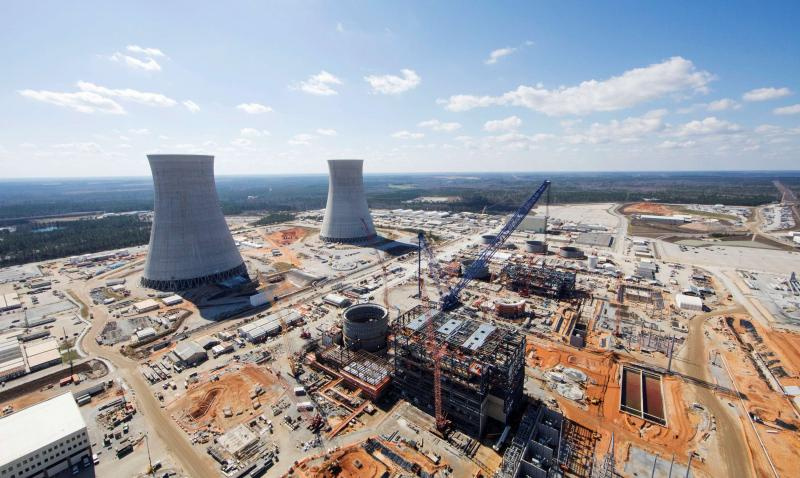Saudi Arabia Has Not Demonstrated Nuclear Transparency: Heinonen

Olli Heinonen, the former deputy director general for safeguards at the International Atomic Energy Agency (IAEA), says that Saudi Arabia has not really demonstrated nuclear transparency, by concluding and ratifying, for example, the IAEA Additional Protocol.
Heinonen, now a senior advisor on science and non-proliferation at Foundation for Defense of Democracies, also believes that “We have also not seen clear nuclear energy plans other than stating numbers of nuclear reactors to be built.”
“They have also not been open on their plans to construct research reactors. The statements of the Saudi authorities are also worrisome with regard to the technologies, which they may acquire,” director general for safeguards at the IAEA says.
Following is the text of the interview with Heinonen:
Q: Top Trump administration officials advocated for a plan to build dozens of nuclear power plants in Saudi Arabia despite warnings that the move could pose ethical concerns and violate federal law, according to a report released by House Democrats. Which group in U.S. try to sell this sensitive technology to Saudi Arabia?
A: There are several countries in the Middle East with programs to tap to nuclear energy as one of the sources to meet increasing electricity and water desalination requirements. Iran, Turkey, the Emirates, and Egypt are proceeding with concrete plans. Participation to these developments in the Middle East is attractive to nuclear industry when they see their ordering books getting thinner elsewhere. The U.S. nuclear technology providers are not an exception from that.
Q: Democrats raise concerns that the Trump administration aiding this effort would allow the Saudi regime access to "sensitive U.S. nuclear technology" that could in turn "allow Saudi Arabia to produce nuclear weapons that contribute to the proliferation of nuclear arms throughout an already unstable Middle East." What is your opinion?
A: Nuclear energy is a dual use technology, which can contribute to the development goals of nations, but some aspects, uranium enrichment and spent fuel reprocessing, are technologies, which can in a fairly short time be turned to produce fissile material, enriched uranium and plutonium for nuclear weapons. States, which own such kind of capabilities, are nuclear threshold states that can change their nuclear intentions, and proceed to nuclear weapons when they see that their security concerns so require.
There are no economic and technical reasons today for a newcomer nuclear state to embark for uranium enrichment or reprocessing. There is no shortage of nuclear fuel services on the well-functioning global market in years to come. This is why we should support the policy of no reprocessing and uranium enrichment in the Middle East, which has enough security problems.
Q: Do you think Trump administration will allow Saudi Arabia for enriching uranium and reprocessing of plutonium by itself?
A: In my view that is out of question. This is probably something where a bi-partisan agreement can be reached. An agreement, which includes restrictions to uranium enrichment and reprocessing.
Q: The report alleges those involved in the planning were aiming to enrich themselves and possibly violated the Atomic Energy Act, a federal law that lays out the preconditions of any nuclear deals with another nation and requires Congressional approval. What is the result of the confrontation of the congress and President Trump administration in this case?
A: The dilemma arises from the statements of the Saudi Arabian officials, who have stated that “what Iran gets, we will get” including uranium enrichment. The question is whether the U.S. can pursue Saudi Arabia to conclude a bilateral nuclear cooperation agreement similar to the one with the Emirates, where the UAE foregoes uranium enrichment. The negotiations will be complicated due to that fact that other technology providers – Russia, The Republic of Korea or China – do not require such guarantees.
In May 2018, Trump unilaterally withdrew the U.S. from the Iran nuclear agreement. Trump logic for the withdrawal was Nuclear Non-Proliferation. But the transferring "sensitive U.S. nuclear technology" that could in turn "allow Saudi Arabia to produce nuclear weapons that contribute to the proliferation of nuclear arms throughout an already unstable Middle East." How can explain this contradiction?
There is no contradiction here. I have not seen any U.S. officials stating publicly that Saudi Arabia should have uranium enrichment or reprocessing. However, those understandings should be enshrined to a legally binding agreement between the U.S. and Saudi Arabia.
But there is more to that. Saudi Arabia has not really demonstrated nuclear transparency, by concluding and ratifying, for example, the IAEA Additional Protocol. We have also not seen clear nuclear energy plans other than stating numbers of nuclear reactors to be build. They have also not been open on their plans to construct research reactors. The statements of the Saudi authorities are also worrisome with regard to the technologies, which they may acquire.
I would have also expected from the IAEA a bit stronger scrutiny to the Saudi Arabian plans. It is true that the current safeguards agreement puts limitations to the IAEA activities in Saudi Arabia, but investigations and follow-ups on intentions of Saudi Arabia, in the light of the statements of its leadership, calls for a tighter monitoring using other tools such as analysis of open source information and satellite imagery. When the safeguards reports show that the IAEA expenditures for Saudi Arabia have in last five years been about same order of magnitude as spent, for example, for Vatican, some intensification of monitoring is required. If this is not done, concerns of countries regarding the true intentions of Saudi Arabia will prevail, and may contribute to a proliferation cascade in the region.
Source: Tehran Times

